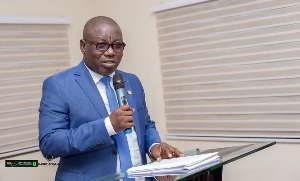Accra, (Greater Accra) 9th July '99
Delegates to the International Social Security Association (ISSA) Conference in Accra on Thursday called for the strengthening of public awareness and the introduction of improved means of reaching out to the public on the importance of protecting their future.
They said this would improve social security coverage on the continent and help contributors to understand the scheme and comply with it.
The conference, which has brought together over 200 delegates from 30 African countries, the World Bank, International Labour Organisation and other donor agencies, is brain-storming on the way forward for Africa's social security systems.
Some of the issues, which have featured prominently on the agenda of the three-day conference, include the autonomy of the social security institutions in Africa and the low coverage of the scheme.
There is a world-wide debate on freeing social security institutions from state control and transparency in investing members contribution.
Most African countries are currently covering only 10 per cent of its active population under assured benefits from contributions.
For instance, in Ghana, the current number of contributors is about 770,000 which is less than 10 per cent of the estimated working population of about eight million.
Mr Eric N.A. Adjei, the Deputy Director-General of SSNIT, in a paper, stressed the need for the use of public information to reach out to the informal sector.
"The future of social security in Ghana cannot be considered without taking into account the informal sector.
"Currently, only an insignificant number of informal sector workers which form about 90 per cent of the working population in Ghana, are members of the scheme."
Most African delegates blamed the poor coverage on the weak public education campaign which have not had the expected impact on the informal sector.
"There is, therefore, the need to adopt measures that will not only introduce the private sector in the provision of social protection, but will also offer wide options to the individuals," a Kenyan delegate said.
Mr J. Allotey-Pappoe of SSNIT presenting a research finding on the use of public information to widen the scope of coverage, said the difficulty in quantifying its effects make most organisations reluctant to commit more resources to it.
He said budgetary allocation in Africa for public information ranges between 0.15 per cent to five per cent.
"There is no doubt that this calls for a clear and pragmatic use of public information as a method to considering social security protection issues in the informal sector."
Most contributions from the floor suggested that Africa must intensify its mass education strategies to ensure wider social protection.
General News of Friday, 9 July 1999
Source: --












